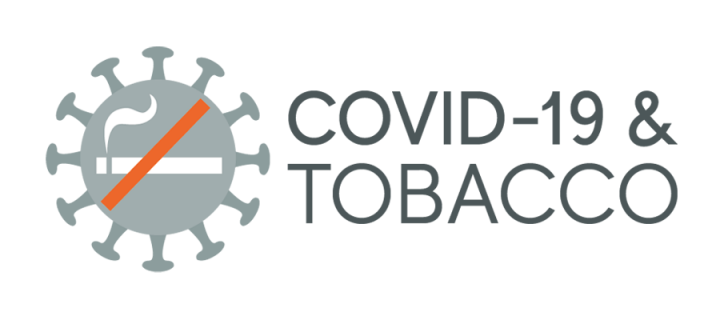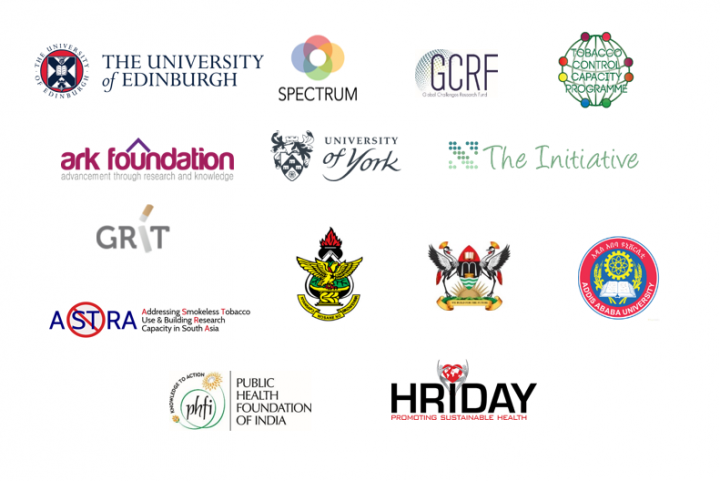Covid-19 and Tobacco
Generating evidence to support policy and practice to address tobacco use during and beyond the Covid-19 pandemic.
This is a two-and-a-half-month research project designed to meet an urgent need for evidence on public health responses and tobacco control in the context of the Covid-19 pandemic.

Lay summary (Research in a nutshell)
The Covid-19 pandemic has affected almost all aspects of life for much of the world’s population. Although evidence on who is most vulnerable to Covid-19 is emerging, it is clear that individuals with underlying chronic health conditions are more at risk. Many of these conditions (i.e. heart or respiratory disease, cancer, diabetes) are more common among smokers. Smokers may also be at greater risk of poorer outcomes if they require hospital admission for Covid-19, as smoking is a significant risk factor for respiratory infections and recovery. There is a need to better integrate responses to infectious disease epidemics and tobacco control interventions, particularly in low and middle income countries (LMICs) where health service capacity is limited.
This project builds on an existing GCRF GROW funded programme, the Tobacco Control Capacity Programme (TCCP). TCCP is a consortium of 15 partners, nine of which are in Africa and Asia. Over the past two years TCCP has established strong infrastructure and links with academic, governmental and non-governmental partners and with international organisations that will facilitate timely completion of this project.
The overall aim is to:
- Generate evidence to support governments in LMICs to make informed policy decisions about the public health response in general and tobacco control interventions in particular, in the context of Covid-19 or other future infectious disease epidemics that affect respiratory health.
Objectives are to:
- Examine the relationship between Covid-19 and tobacco use
- Explore how efforts to address Covid-19 or other future infectious disease epidemics can be integrated with tobacco control policies and interventions
- Investigate the social impact of the Covid-19 pandemic and its response on the mental health, physical health and quality of life of smokers and their families in Pakistan and India
Our project will:
- Provide information to policy makers, professionals and civil society groups in LMICs about the links between Covid-19 and tobacco use in terms of smoking as a risk factor for developing Covid-19 and any relationships between the extent and severity of symptoms, treatment outcomes, survival and post infectious sequela
- Communicate this information through policy briefings that can be used in LMICs to inform public information, and risk communication to tobacco users their families and relevant organisations during the Covid-19 pandemic or future infectious disease epidemics that affect respiratory health
- Provide evidence that can be used by public health professionals to make the case for maintaining or strengthening tobacco control policies and interventions as part of an integrated approach to addressing infectious disease epidemics such as Covid-19
- In Pakistan and India, generate broader evidence about the impact of Covid-19 and the measures taken to address it on smokers and their families that can inform health care, social support and policy responses to the pandemic.
- Contribute to emerging international debates about the implications of Covid-19 for tobacco control and NCD agendas.
Key People
| Name | Role |
|---|---|
| Linda Bauld | Principal Investigator |
| Fiona Davidson | Research Manager |
| Jeff Collin | Co-investigator |
| Fiona Dobbie | Co-investigator |
| Rob Ralston | Co-investigator |
| Rumana Huque |
Country Principal Investigator, ARK Foundation, Bangladesh |
| Monika Arora | Country Co-Principal Investigator, HRIDAY, India |
| Amina Khan | Country Co-Principal Investigator, The Initiative, Pakistan |
| Kellen Nyamurungi |
Country Principal Investigator, Makarere School of Public Health, Makarere University, Uganda |
| Ellis Owusu-Dabo | Country Principal Investigator, School of Public Health, Kwame Nkrumah University of Science and Technology, Ghana |
| Wakgari Deressa | Country Principal Investigator, Addis Ababa University, Ethiopia |
| Kamran Siddiqi |
Co-investigator, Department of Health Sciences, University of York, England |
| Lion Shahab | Institute of Epidemiology and Health, University College London |
| Jamie Brown | Institute of Epidemiology and Health, University College London |
Key publications
Press release on the launch of the study in Pakistan (Daily Pakistan)
Professor Kamran Siddiqi will present results from the project at the Society for Research and Nicotine and Tobacco (SRNT) Virtual Half-Day Conference ‘Tobacco, Nicotine & Covid-19: Existing Science, Emerging Evidence & Future Research’, Thursday 30 July, 2020.
Siddiqi, K., Siddiqui, F., Khan, A., Ansaari, S., Kanaan, M., Khokhar, M., Islam, Z., Mishu, M. and Bauld, L., 2020. The impact of COVID-19 on smoking patterns in Pakistan: findings from a longitudinal survey of smokers. Nicotine & Tobacco Research. Available from: https://doi.org/10.1093/ntr/ntaa207
Stakeholder survey policy briefs
A stakeholder survey was conducted with key stakeholders in 5 LMICs (Bangladesh, Ethiopia, Ghana, Pakistan, Uganda) to assess evidence needs related to Covid-19 and tobacco use.
An online survey was developed by the research team and set-up on Qualtrix, so that the same weblink could be sent to all potential respondents globally. Two of the country teams, Ghana and Uganda, also conducted some additional surveys by phone and face to face. The list of stakeholders was developed from a stakeholder analysis conducted as part of TCCP. In total responses were received from 225 stakeholders between 1st June and 26th June.
The below policy briefs have been produced in response to the findings of this survey and the mapping exercise also conducted as part of this project.
Ethiopia
Bangladesh
Pakistan
Ghana
Uganda
Keep up to date with the live results of the COVID-19 Tobacco survey in Pakistan

Partners and Funders
The proposed project builds on an existing GCRF GROW funded programme, the Tobacco Control Capacity Programme (TCCP). TCCP is a consortium of 15 partners, nine of which are in Africa and Asia. It also has strong linkages to the SPECTRUM consortium, a UK Prevention Research Partnership funded programme.
This project includes the following partners:
- School of Social and Political Science, University of Edinburgh
- ARK Foundation, Bangladesh
- Addis Ababa University, Ethiopia
- School of Public Health, Kwame Nkrumah University of Science and Technology, Kumasi, Ghana
- HRIDAY, Delhi, India
- Public Health Foundation of India
- The Initiative, Pakistan
- Makarere School of Public Health, Makarere University, Uganda
- Department of Health Sciences, University of York
The project is funded through an internal call for proposals from the University of Edinburgh, utilizing funding from the Scottish Funding Council, as part of their Global Challenges Research Fund.
Timeline
1 May-10 July 2020
Events
COVID-19 and Tobacco Control in Africa: Findings from a Rapid Response Project in Ethiopia, Ghana and Uganda
13:00 GMT, Tuesday, September 15th, 2020
The webinar will present findings from a multi-country study that aimed at generating evidence to support policy and practice to address tobacco use during and beyond the COVID-19 pandemic. It will describe what is now known about COVID-19 and tobacco use from international literature and outline how the pandemic has affected tobacco control in three African countries (Ethiopia, Ghana and Uganda). The webinar will also discuss steps to better integrate responses to infectious disease epidemics and tobacco control interventions across the continent.
Tobacco, Nicotine & COVID-19: Existing Science, Emerging Evidence & Future Research
Thursday, July 30, 2020
Since the advent of the global COVID-19 pandemic, research has been rapidly instigated to understand the risk and protective factors for infection, severity of disease, and impact on a wide range of social and behavioural domains. This virtual half-day conference organized by SRNT focused on the potential role of tobacco and nicotine in this global pandemic. Presentations addressed the science of tobacco as a risk factor for respiratory disease and the role of nicotine and tobacco as either increasing or decreasing severity of COVID-19 symptoms, and the impact of the pandemic on tobacco use behaviors and perceptions.
Recordings of the Q&A session and a separate discussion panel are available, as well as a list of relevant references for further reading.
Tobacco, Nicotine & COVID19 event website
Scientific themes (keywords)
Covid-19; coronavirus; tobacco; non-communicable disease; smoking
Methodology keywords
Rapid evidence review; qualitative research; survey

